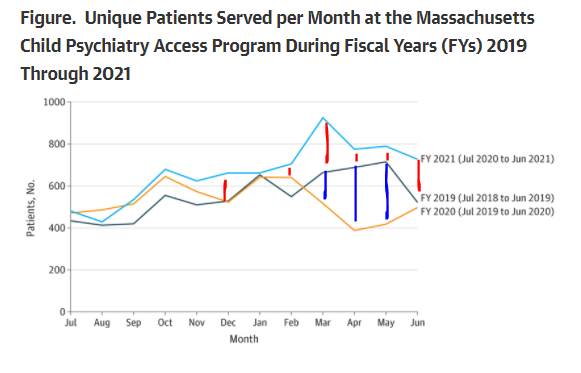
I've offended some with comments on mental health expertise; and I should clarify. I do not mean to rob clinicians of *experience* (for example, many ER docs or pediatricians will see mental health concerns). And maybe even hundreds of cases per year!
/1
/1
However, expertise is different than experience. Most of physicians would (if they could??) refer to experts when they need expert care for those problems. In the same way, despite seeing many kids with heart problems, most pediatricians are not experts in cardiology
/2
/2
The problem is that experiences are shaded by our biases externally and internally, and expertise typically involves a foundation of theory, specific knowledge, and enough experience to balance complicated sets of information and render an expert opinion.
/3
/3
In medicine, this is commonly understood. Primary care physicians even "specialized primary care" physicians cannot reasonably be experts in every system, so they consult experts regularly.
/4
/4
And I tend to notice that most of the "absolutely sure" medical people when it comes to Mental Health & pandemic are not mental health experts, or specialists in mental health. They are non-expert clinicians.
/5
/5
I absolutely adore primary / generalist physicians who provide a crucial role and have THEIR OWN expertises that I do not. But specialists exist for a reason, and it's important that if we are making policy decisions or even interpreting data, we are doing so *expertly*.
/6
/6
Seeing patients is not a substitute for expert training, though great clinical care and skill can be had by seeing patients.
I mean not to offend my colleagues. However, I do mean to defend and highlight the need for expertise.
I mean not to offend my colleagues. However, I do mean to defend and highlight the need for expertise.
nuances/examples:
an orthopedic surgeon who sees patients with mental health concerns post suicide attempt might not be an expert in mental health, but maybe they have expert knowledge of postsurgical care in mental health patients
an orthopedic surgeon who sees patients with mental health concerns post suicide attempt might not be an expert in mental health, but maybe they have expert knowledge of postsurgical care in mental health patients
a nurse practitioner could see nothing but mental health patients, yet appropriately refers when first or second line options fail. this nurse practitioner may have expert generalist knowledge, but still requires expert specialist knowledge
a pediatric emergency room physician could see hundreds of suicidal kids every year, but when they have specific concerns or issues, they will appropriately consult or refer to mental health specialists
• • •
Missing some Tweet in this thread? You can try to
force a refresh








